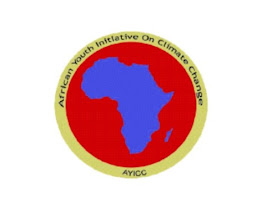Doha Briefs: Hurdles
Day 3 of COP18 was punctuated with news of numerous hurdles hampering
the progress of the search for solutions to combat climate change. Typical of
most negotiations, there were parties who were keen on making it near
impossible to agree on a number of issues. As you may all understand, one of the
biggest issues at COP18 is putting in place a second commitment period for the
Kyoto Protocol, which is to take effect from 1st January 2013.
However, the biggest hurdle has been in sorting out the issue of the
outstanding carbon emission permits (AAUs).
The Surplus Issue
If you are not familiar with carbon trading issues,
you can take a slight detour and check out this primer on carbon emission
permits and trade
There are around
13 billion emission permits from the first commitment period of the Kyoto
Protocol (2008 - 2012). In the quest for a second commitment period, the issue
is what will happen to these permits.
Where it all
came from: In the first commitment period, many
country parties made weak pledges with regards to their targets for reducing
carbon emissions. This meant that chances were these countries would have a
surplus from carbon emission targets that they would then sell to countries that go
past their emission targets. Poland and Russia are among the biggest holders of
the surplus permits.
Spilling
over: If this surpluses spills over into the second commitment
period of the Kyoto Protocol, then the danger lies in the fact that top
carbon-emitting countries will focus on buying carbon emission permits without
cutting down on their carbon emissions. This, coupled with the fact that the
prices for the carbon emission permits have been dropping pretty fast, may
render the Kyoto Protocol ineffective. Also, there lurks the grim possibility
that the pledges for the second commitment period may be quite weak.
Therefore, this
issue will be crucial in determining the outcome of the discussions on the
second commitment period for the Kyoto Protocol.
Bits and Pieces
A round up of
happenings with a bearing to COP18:
·
The US has just dropped a
‘carbon bomb’ by banning EU taxation of US airlines. The EU had come up with a
policy to tax all airlines going through its airspace, but then it has
suspended it for a year following the move by the US. The other side of the
story from the US is that this will be an opportunity for the International Civil Aviation Organization (ICAO) – the UN
agency in charge of aviation – to adopt a cross-sectoral approach of a
carbon tax on airlines, which will also be a good source of finance for climate
change mitigation and adaptation projects
·
Poland – renowned for
obstructing negotiations at UNFCCC COP – will host COP19 in 2013. The world is
now watching closely if Poland will lead by example in finding a solution to
address climate change
·
There is progress in the
establishment of the Climate Technology Centre and Network (CTCN) that will be
hosted by UNEP. This is important because one of the key issues, with regards to
climate change adaptation and mitigation, is the development and transfer of
environmentally smart technologies (ESTs), with a special focus on developing
countries
Conclusion
Despite these
hurdles, negotiators at COP18 are working to resolve these issues, and we will
sure keep you posted on any developments. See you in the next briefing!
Compiled by:
Kennedy Liti Mbeva
Note: The ECO newsletter was a useful research in compiling this update
Note: The ECO newsletter was a useful research in compiling this update

Comments
Post a Comment